A vacant property lab could help put land back on tax rolls. Photo courtesy Flickr/haventtheslightest
The JFP has long decided to celebrate our birthday by focusing on both Jackson's progress and new big, hairy ideas (and a few smaller ones). Every year, we reach out to fellow Jackson warriors to help us come up with ideas to inspire all of you to action to make our city the best she can be. Post your ideas at jfp.ms/jxn13.
1 Figure Out What We're Good At
In economic-development circles it's called "clustering," and it's all about what your little postage stamp—specifically, your region—is good at in an economic sense.
There are actually two types of clusters—traded and local. Local clusters are those that tend to create products or services that are consumed locally, such as health care, hospitality, real estate and retail—all things, by the way, that the Jackson metro area is good at.
Traded clusters, then, are the types of business that your region tends to export to others. According to clustermapping.us, one of our biggest industries probably wouldn't surprise you—automotive. Our leader when measured by average wages is oil and gas production.
Even more interesting is the industry that leads the Jackson metro in terms of job growth—education and knowledge creation. (That's followed almost immediately by automotive.)
So what does that tell us?
Classic clusters are places such as Silicon Valley (technology), the California wine country (wine) and, say, furniture in North Carolina or entertainment in Los Angeles or publishing and advertising in New York. Those are places we readily identify because of the synergies that go with having interdependent businesses in the same geographical area.
Instead of worrying about how a concentration of similar companies creates competition (like if a tech company should avoid Silicon Valley because other tech companies are already there), clusters point you to the shared resources that can be bent to a strong cluster—everything from a labor pool of qualified workers to universities willing to serve your cluster with specialized courses, to governments designing specialized programs and incentives.
But what's really important is to make sure you're picking a cluster because there really is regional strength—not just because it's cool. Jackson may not have the potential to be the Silicon Somethin-or-Nuther that people have tried too often in the past. The wine cluster in California isn't just about wine production—all sorts of ancillary businesses feed it from barrel and cork making to fertilizers and farm equipment to marketing and Internet retailing specialists.
Knowing your cluster can be a big frackin' deal.
So that's idea No. 1—let's dig in and figure out what clusters really make sense for Jackson and the metro. I'm guessing medical technology and instruction (centered on UMMC but perhaps encouraged at other colleges and universities), automotive and all the spinoffs—but there may be more to it.
Let's find our clusters and then craft policies that encourage them to grow and flourish, thus creating jobs without giving up the farm to BigBoxCorp on the local level or RandomEnergyExperiment.com up at the Legislature.
— Todd Stauffer
2 House the Homeless
If we don't know where to start to solve this shameful problem, then at least put a roof over the heads of our homeless veterans first.
Reader J.C. Ramsier tagged us on an Upworthy.com post about Connecticut's decision to ensure their homeless veterans aren't sleeping on the streets. This summer, that state became the first in the U.S. to put all chronically homeless vets in housing or on the path to getting it. The state defines "chronically homeless" as being homeless for at least a year or at least four times in the past three years, the Associated Press reports.
Two cities in other states have housed their homeless vets, too: Phoenix, Ariz., and Salt Lake City, Utah.
Connecticut has housed 300 homeless people in the last two years as well. The state decided to be proactive, responding to research showing that a government investment in housing the homeless is actually cheaper over time than leaving people on the streets. (See jfp.ms/homeless_data.)
The good news is that Soldier On and other groups are already on this in Jackson. Mayor Tony Yarber is also on board, saying the city will house every homeless veteran. Read more in Arielle Dreher's story this week at jfp.ms/solderon.
— Donna Ladd
3 Increase Human Connection
Reader J.C. Ramsier wants the city to "build in more increased walking and biking infrastructure that benefits not only home values and the socioeconomically advantaged, but also improves resources and access for the most challenged in our society. Physical connection normalizes disparate groups and builds a sense of community.
Of course, as a citizenry we need to decide to think differently about public transportation and park our dang cars more often. Much of the problem in Jackson is systemic: The bus-route system is antiquated as architect and thinker Roy Decker will tell you any chance he gets. We need to rethink it.
Water can bring people together, reader Jeffrey Brown tells us. He wants the Pearl River to become what he calls a "front-porch gathering place" for the city: "I see miles of unused riverfront just waiting for some sort of activity and development for Jackson. I'm imagining our version of San Antonio's Riverwalk. Tables, eateries, retail establishments all bordering a landscaped esplanade along the river. Even have small people powered boats on the water providing short river excursions."
We would add that any plan that may some day come to fruition to develop waterfront property in Jackson, such as along the Pearl River, needs to have ample public green space and not be eaten up by private development (and certainly not a casino as we hear mentioned from time to time. No, no, no. See jfp.ms/pearlriver for cautionary reports.)
Scott Crawford, the local LEGO city artist who is in a wheelchair, is most concerned with the creation of "Walkable Communities" with fully ADA (inclusive) sidewalks. "The 'hairy' part of that is it will take actual building/investment/implementation, not just 'planning,'" he writes, correctly.
Chris Mims, the former communications director of the city, wants us to build human connections by giving people more accessible and affordable places to hang out together inside, too. "We need to expand our 'Shareable' City model to include community centers and libraries as sites where shared resources can be centralized, while affecting every part of the city," he writes.
— Donna Ladd
4 Prevent Crime
Jackson Police Chief Lee Vance wants Jacksonians to understand that the police cannot alone prevent crime, especially in a state where guns are so plentiful and, often, legal. Vance said that the key for every citizen is to engage with police by attending COPS meetings, Citizens Police Academies and other police-community events that bridges divides between residents and police officers, and teaches safety tips to attendees.
If we really want to prevent crime in Jackson long before it gets to the level of police intervention, the key is education, education, education. It is foolish to believe that all young people attending under-funded schools are getting the tools and training to avoid a life of crime, especially if they are growing up in trauma-filled homes and neighborhoods. Public education is vital, and must include textbooks and other basics that many schools are lacking now because the state Legislature will not follow the law. This issue transcends politics; it is time for Mississippians to force lawmakers to follow the law and provide adequate funding—in order to keep our communities safer, among other things. Vote for Initiative 42 on the November ballot. See 42forbetterschools.org.
For more ideas on making the city safer, including the importance of "Eyes on the Streets," see jfp.ms/crime.
— Donna Ladd
5 Create the Jackson Vacant Property Lab
On Aug. 27, 360 tax-forfeited properties in the city of Jackson and surrounding areas in Hinds County became available to the public for a sealed bid auction. For many, this might have sounded like an easy money-making opportunity. To many city and county officials this could mean increased tax revenue, and for many others merely a small step forward toward tackling the significant problem of vacant and abandoned properties in Jackson.
Almost all of these properties are vacant; they represent less than 10 percent of more than 3,700 properties that have been forfeited to the state in Hinds County, and furthermore, these state-owned properties are barely a quarter of all vacant properties in the county.
The problem of vacant and abandoned properties has been growing steadily over the years, and the recent housing crisis made the problem significantly worse.
The U.S. Census Bureau estimates that by 2013 vacant properties had reached about 13,000 (over 17 percent of all residential properties) in Jackson and well over 15,000 in Hinds County. Excluding for-rent, for-sale and seasonal properties, the city has well over 6,000 vacant properties. Most likely these are undercounts because the census does not include buildings slated for demolition, new buildings waiting for occupants, and they don't include vacant commercial buildings.
Many of these properties are often concentrated in a few neighborhoods. Therefore, their negative effects on quality-of-life issues are often intensely felt by residents who still live there. For example, the West Jackson Planning Guide estimated that 41 percent of all lots were vacant in the west Jackson area. This problem is not unique to Jackson. Most of the older cities have been trying to grapple with this problem and have taken initiatives to "turn liabilities into assets."
Among many proposed solutions, such as countywide land-bank programs, sustained targeted investments based on neighborhood typology systems, and temporary urbanism (community gardens, special events, festivals, concert series, stores and restaurants), City of St. Louis initiative one interesting idea in collaboration with Washington University there. The idea of the "Sustainability Land Lab" is based on testing innovative ideas on creatively using vacant land and then using the lessons to inform policies and practices that address the management of vacant land.
The traditional models of development are often based on a "highest and best use" analysis that only looks at the market conditions as understood by common developers. These analyses often ignore community needs and only focus on the extent of short-term profit-making abilities.
In low-demand cities such as Jackson, this approach makes most redevelopment projects in poorer neighborhoods a non-starter. Additionally, this approach excludes population that is heavily community-oriented, socially conscious and sensitive to the impact on the environment from engaging in the development process.
In November 2012, the Sustainability Land Lab organized a public competition for ideas on creatively reusing vacant land. Winners were awarded $5,000 in seed money and a two-year land lease for implementation. Ideas executed from the 2012 competition included Bistro Box (reusing shipping containers into compact restaurant and culinary destination); Chess Pocket Park (a chess-themed, low-cost, low-maintenance neighborhood park); The Mighty Mississippians (demonstration garden with native plants and cultural programs); Sunflower+ Project (transitional solution with sunflowers); and Renewing Roots Urban Farms (a scalable farm for organic local produce).
In addition to these winning entries, the competition also generated many other ideas worth knowing. Read about them at http://landlab.wustl.edu/.
Idea competitions are not new. Placing constraints of environmental and social considerations on ideas is not new, either. What is innovative is the commitment to engage creative ideas with implementation that allows for practical testing. Implemented in Jackson, the City could partner with its universities to organize a similar competition. A small fund-raising effort could generate seed money, and the City could offer similar two-year land leases on city-owned properties.
— Mukesh Kumar
6 Let the Sunshine In
In the past year, both the Jackson City Council and Mayor Tony Yarber have put forth proposals to shine a light on the City's beleaguered finances.
First, in June, the city council approved a $22,000-per-year agreement with Redwood City, Calif.-based OpenGov to convert financial data into an interactive website. The company has signed up 275 cities, including Los Angeles. After becoming one of Bloomberg Philanthropies' What Works Cities, Yarber's administration began an initiative to enhance the city's "use of data and evidence to improve residents' lives" through an open-data portal on the city's website.
Separately, these could be good first steps. But the next steps should involve marrying up the two systems and expanding them. Really, what's needed is a comprehensive city transparency policy codified by city ordinance.
The first issue that such an ordinance should address is to spell out what information should be available, which personnel are responsible for uploading data, and a timeframe for doing so because these systems are only as good as the quality of information fed into them.
Secondly, and this is probably going to take some funding, the City has to develop a better archival system for its documents, including meeting agendas, minutes, notices, recordings, contracts and campaign-finance reports.
A lot of states have gotten on this bandwagon, albeit to varying degrees of effectiveness, but more and more cities are also realizing the value of such policies.
In California, the City of Oakland requires candidates to electronically file disclosure information (Oaktown also limits political contributions to municipal candidates). Minnesota also has a law requiring municipalities to post campaign-finance reports online, making it one of the strongest municipal campaign-finance laws in the nation.
Lastly, in the age of Twitter and Instagram, the city should develop a comprehensive social-media policy. Jackson is now on our third mayor and, therefore, its third communications staff and third official city social-media accounts in just a few years. These tools are important not just because they allow officials to disseminate information, but over time they tell the story of Jackson. When written properly, the policies also cut down on the use of city resources for personal and political purposes, such as campaign fundraising.
Jackson should follow the lead of cities like Seattle, Wash.; Austin, Texas; Tipp City, Ohio; and Snohomish County, Wash., that have developed policies to archive social media and give guidance on the dos and don'ts of official city social media accounts.
For true transparency, which encourages innovation and, ultimately, helps government's balance sheets, the city shouldn't go about it piecemeal. In the coming years, the city, government watchdog groups, media organizations and citizens should make it happen.
— R.L. Nave
7 Listen to Young People More Often
Ever noticed that a lot of people say they want to "help young people," but seem to seldom have any hanging around them, much less asking for their opinions and truly listening? We're reminded of Frank Melton's campaign for mayor; many young people warned that he was a very bad idea, but many adults weren't ready to listen. But they were right. But now we have a different mayor, and that can mean potential to listen to young people.
Artist daniel johnson, who does not capitalize his name, thinks community members should work with the Mayors Youth Initiative to hire seven Jackson Public Schools juniors and seniors, one from each of the seven wards.
Then, johnson says, "charge them to define and research a local issue and an array of paths forward. Have them meet with their city council counterparts and the mayor along the way. Next, facilitate the student team to create an art engagement that inspires citizen movement on their issue.
Meantime, think of ways you can engage young people, ask their opinions, empower them, believe in them, teach them, mentor them. Young people's opinions matter and can help the city.
— Donna Ladd
8 Create Radically Better Transit
Better transportation could change so much about life in Jackson and our dependence on cars (and being able to afford one.) Tim Kynerd writes: "I've toyed with the idea of rail transit for Jackson, but as an incremental improvement, the bus system could be improved in four ways:
• Longer span of service (starting earlier, but more importantly, running much later in the evenings; Sunday service)
• Service to the suburbs (which they would help pay for)
• Much more frequent service
• Much more extensive service (many more lines)
Yes, public transportation costs money. And it's stymied by the fact that so few people take what's here to help us afford more. It's a classic Catch-22.
Jackson also needs to take seriously the reality that many people cannot find or keep jobs because they cannot afford transportation to get to them. In 2014, the city of New Haven, Conn., conducted a study, "How Transportation Problems Keep People Out of the Workforce in Greater New Haven," finding the data needed to spearhead change there in public transportation. "When you can't find or afford transportation to a job interview, job training or place of work, you give up after a while. This cycle is hard to break, and frequently moves from one genera- tion to the next, creating a downward spiral of long-term unemployment, poverty and despair," the report warned. Read it at jfp.ms/newhaven for inspiration.
— Donna Ladd
9 Double Down on Shopping Local First
With recent headlines about places like Sam's Club leaving Jackson and Costco passing the city by, it's vital to remember how little those corporate-owned chains do for a local economy like Jackson's. According to studies by the consulting firm Civic Economics, local independent businesses return 48 percent of their revenues to the community. That comes in the form of local labor and profits to the owners, procurement of supplies for internal use, procurement of products for resale and charitable giving.
For corporate-owned chains, the amount of money re-circulated in the community is 13.6 percent. That is, 86.4 percent of dollars you spend at a big-box retailer leave the local area. Profits go to Bentonville or Minneapolis, banking is done elsewhere, fewer local accountants, attorneys, senior managers and others are employed; as a percent of revenue, even charitable giving tends to be lower.
Obviously, shopping in Jackson means a larger percentage of your sales-tax dollars go to Jackson's infrastructure, including the special 1-percent sales tax earmarked for the purpose. But shopping with local businesses also creates more wealth in our communities, and gives us more political power when it comes to shaping our future. When a neighborhood has a lot of successful business owners, its influence and its ongoing success tends to feed on itself—a phenomenon that seems to be at play in places such as Fondren.
Local businesses can even be better for the environment, says the American Independent Business Alliance (amiba.net), as they tend to be smaller, in areas that are more dense (where people already live and can get there with less driving), and often don't feel the need to develop unique, inexpensively constructed buildings with large paved surfaces for parking.
Likewise, local businesses can be cheaper for municipalities (and thus keep taxes lower) because they require less construction (generally they don't need new roads or traffics lights like a new big box does), and local businesses tend not to get the same generous incentives and tax abatements that big boxes frequently demand from all-to-willing city councils.
And don't be fooled by "Shop Locale" efforts—Shoplocal.com, for instance, is a trademarked website owned by The Clarion-Ledger's parent company, Gannett. The site offers digital access to circulars from primarily national outlets such as Wal-Mart and Home Depot; while shopping at a big box in Jackson proper might net the city a little more of those sales tax dollars, the multiplier doesn't kick in.
While shopping at franchises or big-box retailers may be necessary sometimes, shopping local first is the way to combat that. Shift shopping as much as you can to benefit yourself and the community.
Oh ... and what about Amazon? Sorry, online sales tend to circulate about 1 percent of those revenues in your local community. So, when possible, spend with people investing their blood, sweat and dollars in our city, and make sure they feel the love.
— Todd Stauffer
10 Start with Race
Many people have a natural tendency to want to jump past dealing with race healing, reconciliation and the real demon in the room: race inequity. They think we can declare "all that behind us," and just move on with everyone getting along now.
Plus, they say, we can't heal racism, anyway.
The problem is that approach actually imbeds the inequities resulting from historic racism in our nation that led to ingrained poverty, unequal schools, blighted neighborhoods. It left the playing field unlevel, compouding the problems.
What to do? Face racism. Learn what structural racism is and the problems it creates today for everyone, including the symptom of crime. Get involved in race dialogue, whether the free dialogue circles offered by jackson2000.org or the action-oriented Undoing Racism workshops by the People's Institue in New Orleans (http://www.pisab.org), which are powerful two-day immersions into what racism really is (not just interpersonal bigotry) and how we can all fix it. As a community, we can learn and work together to become the nation's most intentionally diverse city. See nic.org for ways.
— Donna Ladd
11 Eat Well
Christopher Mims, the former communications director for the City of Jackson, wants us to eat well. "I've been reading about using local corner stores as community-supported agricultural box pick-up sites. It gets fresh fruits and veggies into more hands and can help combat the problem of food deserts.
Edward Peter Cole II wants more "pop-up eateries" where two or three food trucks with chairs and music "pop up" in areas and times other than where they usually are. This would be great in closed-down businesses and blighted areas affected, he said. "It will give people who may not usually have the options some new food options in their areas. It will also give the vendors a chance to consider new service areas. I would love to see that done on Capitol Street on the weekends to start the flow of traffic back downtown."
Meantime, check out Food Truck Fridays in Smith Park every Friday over lunch from now through Oct. 9, 2015.
— Donna Ladd
12 Invite Help
Rachel Jarman Myers wants more people from inside and outside Mississippi volunteering in the city—which can appeal to the types of people who want to make a difference while visiting a new place. "I've been batting around an idea for how to organize impactful "voluntourism" opportunities in the city and creating experiences that are mutually beneficial for both service and host organizations. Getting interested visitors and students to Mississippi here for a week of service learning. Understanding the challenges and opportunities in a city like Jackson. Hearing from community leaders, visiting historic sites, and volunteering time and money on projects that directly support local organizations.
See voluntourism.org for inspiration and find Rachel on Facebook if you want to help her get this going. She's a new mom, and could use the help.
— Donna Ladd
13 Find an Idea Worth Spreading
Mississippi's first TEDx conference, TEDxJackson, owes its existence to the idea that great ideas should be shared. In 2014, several members of our founding team had privately entertained the idea of organizing a TEDx conference. But only when we started talking with each other did we gain the momentum to make it happen. Even though we didn't realize it at the time, we were living out the TED organization's mission to advance "ideas worth spreading."
In a similar way, the concept of "ideas worth spreading" can serve as a catalyst that sparks innovation, economic vitality and quality-of-life improvements in our city. In fact, I believe the blueprint for our city's success lies in these three, deceptively simple words.
First, notice that the focus is on ideas. It's relatively easy to give a rousing speech, reflect on a personal experience or challenge others to find solutions to a difficult problem. But a shared idea is much more than just a novel thought—it's a call to action. Great ideas provoke action. The more powerful the idea, the greater the response.
Let's look now at that second word. "Worth" is a judgment. It decides whether or not people will become inspired to act on an idea. In the business world, worthy ideas can attract investors, devoted employees, media attention and, yes, consumer purchases. But some ideas are worth more than money. In fact some ideas, are so worthy that people will devote their time and energy without expecting payment of any kind.
How do you know whether an idea is worthy? The answer lies in the third and final word of TED's mission statement. Simply spread your idea around, and you will quickly find out the truth. Sharing ideas is a surefire way to overcome the bias we all have to prefer own ideas, especially when we've dedicated time and effort to them. While critiques may be humbling, such feedback can not only weed out weak ideas but also refine good ideas into great ones.
To build Jackson into the great city we all know it can be, let's work together to spread some worthy ideas and, most importantly, translate those ideas into action.
Learn more, and apply to speak, at tedxjackson.com.
— Randy Lynn
Reader Ideas
William Spell Jr. There's a Jackson 2020, a Jackson 20fillintheblank, a Master Plan, a Grand Scheme...what we need is a short-term plan, dammit.
Tom Head I would have suggested Revolution's Corner. Seriously. That's exactly what I've been saying downtown needs (a venue for light grocery shopping + casual, inexpensive socializing), and suddenly here it is.
Donna Ladd Maybe the hairy idea is going to great lengths to support it, Tom.
Kate McNeel's Wish List
- Send some people to the Jackson Women's Health Organization to ask protesters about how they feel about providing food, shelter, and education to poor mothers and children. Record their answers and put them on YouTube and then send them viral.
- Do an analysis of the economic impact of changing the craft-beer laws. And then see if we can replicate that success.
- Create an infographic or other interactive website explaining to the Phil Bryants of the world that the "creative economy" is more than just white men with advertising agencies. They need to encourage actual creativity and creative people—of other ethnicities, religious views, etc.
- Put up crosswalks from UMMC to the parking lot at Veteran's Memorial Stadium.
Catherine Moore Lee I hope the city will support planning director Eric Jefferson's proposal to update the municipal comprehensive plan and give Jackson an opportunity to adopt a vision for city development that will include smart growth principles and inclusionary planning practices
Duan Carter Amen! Because these vacant commercial properties should be a lesson for us all. We don't need to go down this road—where a company gets tax incentives and dips when the demographics no longer fits their "target market."
Weigh in with your ideas for Jackson at jfp.ms/jxn13.

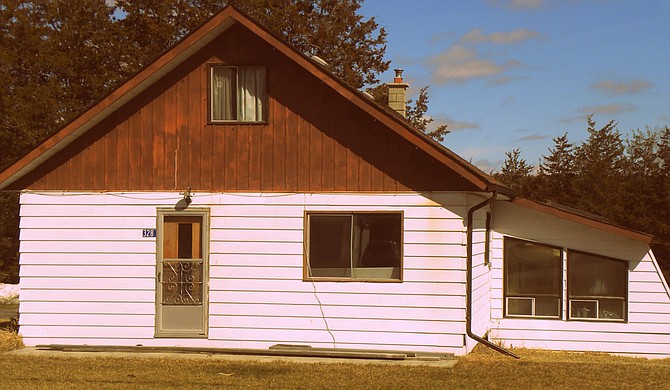
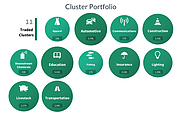

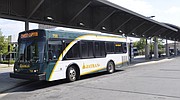
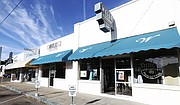

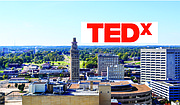
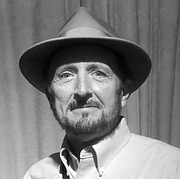

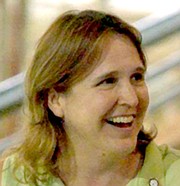
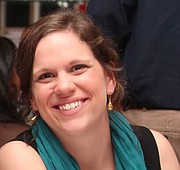

Comments
Use the comment form below to begin a discussion about this content.
comments powered by Disqus